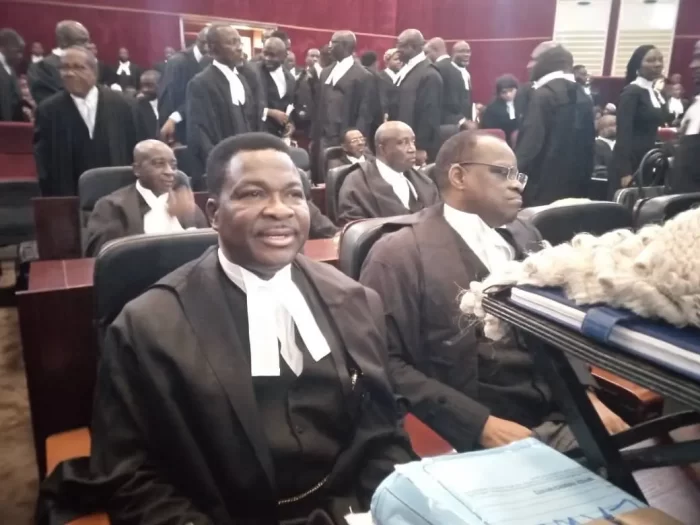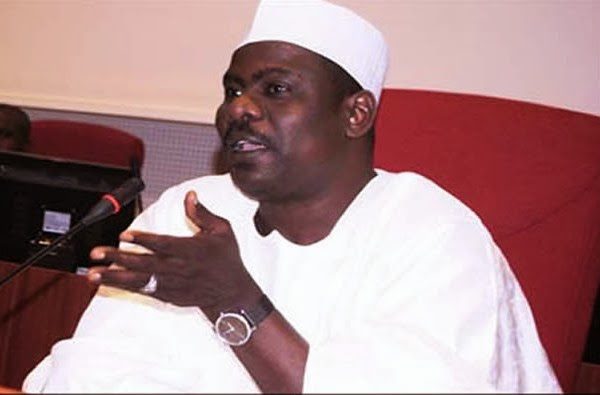Political Issues
Election Petitions Can Strengthen Democracy -By Tonnie Iredia
Nigeria’s political party system is exceedingly weak. Whereas it is political parties that promote democratic practices in other climes, the irony is that in Nigeria, political parties lack internal democracy. As the history of elections in the country has shown, most Nigerian political parties, especially the ruling parties often devote huge energies on how they can win elections through the circumvention of rules.

Some 3 weeks to the swearing-in of the winners of the last general elections in Nigeria, the Catholic Archbishop Emeritus of Abuja, John Cardinal Onaiyekan argued that the country’s electoral system ought to be reviewed to bring to an end the practice which allows another round of contest after winners of an election had been inaugurated. In the words of Onaiyekan,”it is not right to have a system that is constantly contested.”
Put differently, contests should end before governance begins. Many people especially supporters of the acclaimed victorious parties who felt the argument did not favour them attacked the frontline clergy. What such supporters want in earnest is a cancellation of election petitions which they see as running against the spirit of sportsmanship. For them, everyone should congratulate their own favoured winner who should then set up an inclusive government.
What the winners of an election and their supporters appear to be suggesting is that how a winner emerges is irrelevant – a posture of ‘all is well that ends well’ which is visibly antithetical to democratic practice. Of course, it would be unfair to allow any fake winner to assume office or be allowed to remain there after having found his victory to be defective. As a result, the judiciary ought to vigorously review any disputed election and discourage political jobbers from getting into leadership positions in government. At the same time, the settlement of election disputes which may lead to the removal of persons who had been allowed to hold office, no matter for how brief, is untidy and should be discouraged.
The way out is not just to have election tribunals that would courageously identify and declare the rightful winners; but that would also expeditiously conclude the assignment between the period of voting and swearing-in of winners. After all, in recent times, election petitions have been concluded under 14 days in smaller African nations such as Kenya, Malawi and Angola. As foremost activist, Femi Falana has been asking, is there any reason why Nigeria cannot do same? Why are many party loyalists always anxious to sweep plenty of dust under the carpet by calling on petitioners to withdraw their election petitions supposedly in the public interest? Do fake elections benefit society? Again, why are Nigerian patriots not insisting that their nation should follow global realities?
Against this backdrop, let’s recall two examples of questionable calls.In Delta state, one political chieftain, Nick Ovuakporie called on Senator Ovie Omo Agege, the APC flagbearer in the last governorship election in the state,to drop his election petition and congratulate governor Sheriff Oborevwori in what he called the spirit of sportsmanship. Is it not surprising that it is in a state where the winner emerged with a huge margin that such a call was made?
At the federal level, a former coordinator in the then APC Campaign Council, Ene Ogbole, would also want Atiku Abubakar of the PDP and Peter Obi of the Labour Party to withdraw their election petitions and join what she described as President Bola Tinubu’s proposed government of national unity and inclusive government. Whatever may be the motivation of the callers, sorting out election grievances legally is certainly a better option for the country.
The gains of election petitions, when well-handled, are numerous. One of such gains is the capacity to attain the justice in any of the cases presented. Peter Obi was the first to enjoy the gain of reclaiming his mandate as governor of Anambra State, after the 2003 elections which political harvesters had seized. After the 2007 elections, former governorship candidates in Edo, Ekiti and Osun states were similarly assisted by relevant election tribunals to regain their mandates from the hitherto almighty PDP. It should also be noted that it was through the work of an election tribunal that a defect in the credentials of a deputy governorship candidate was used to stop the otherwise victorious APC flag bearer David Lyon from forming the government of Bayelsa state after the 2019 elections. What this latter case established is that the victory of a candidate with the highest number of votes at an election, can be set aside on account of any infraction or legal disability.
Nigeria’s political party system is exceedingly weak. Whereas it is political parties that promote democratic practices in other climes, the irony is that in Nigeria, political parties lack internal democracy. As the history of elections in the country has shown, most Nigerian political parties, especially the ruling parties often devote huge energies on how they can win elections through the circumvention of rules. Whatever little gains the parties have made so far were largely imposed on them by election tribunals. Surprisingly, notwithstanding the nullification of party primaries organized by the APC for the 2019 elections in Rivers State, the same party had to forfeit all its election victories in Zamfara State. The combined calamity suffered by the APC in Bayelsa, Zamfara and Rivers states suggests that the settlement of election disputes must never be halted because our politicians are not ready to follow the democracy that is premised on the rule of law.
The performance of Nigeria’s Independent National Electoral Commission is no doubt one of the reasons why every election petition should be allowed to run its full course. It is during the proceedings of election petitions that the searchlight is usually beamed on the shoddy behaviour of the electoral body. Failure to begin voting day process on schedule, lack of understanding of the process by INEC officials and inadequacy of men and materials during elections are usually laid bare at the tribunal hearings. Indeed, election tribunals have helped in a few cases where rogue officials showed that electoral malpractices can also be committed or aided by senior academics who are supposed to be the nation’s models. Reports from proceedings in election tribunals on the 2023 polls that strange images were wrongly uploaded in place of results confirm the expedience of allowing the tribunals to work.
Unfortunately, some of the tribunals have not done well at all. They so much cherish pursuing technicalities making them appear to the public as paid agents of some politicians. In other cases, their verdicts confuse the public; a good example being the Osun governorship election in 2018, where the candidate with the highest votes lost because one of the members of the tribunal was allegedly absent once during the proceedings.
There is also the case of the Imo governorship election where the tribunal at the highest level declared a candidate winner with more votes than voters. Also memorable, are cases where non-aspirants became candidates in the senatorial elections. However, although some politicians have successfully used the judiciary to win elections in the past, it is only fair to make the point that it is not every judge that is part of the corrupt cabal in the Judiciary. Hopefully, the exposure of scandalous verdicts would sooner or later curtail excesses in the judiciary.
Perhaps the greatest gain of election petitions is the opportunity the option offers to politicians to follow the due process of law. In times past, many politicians had more faith in extra-judicial methods. Those were the days when opponents were assassinated in broad daylight thereby frightening away decent citizens from participating in politics and elections. If the example of candidate Muhammadu Buhari is anything to go by, there is nothing wrong in ventilating one’s electoral grievances in the approved courts several times. Buhari doggedly did so about 3 times even when he was abandoned by his political party and no one dissuaded him from continuing.
Accordingly, those calling on aggrieved citizens to abandon their election petitions in the spirit of good sportsmanship greatly miss the point because their advocacy will never offer free and fair election from which visionary leaders will emerge and initiate viable policies to develop Nigeria. Besides, the calls portray a myopic viewpoint that democracy is basically same as government whereas the latter is only part of the former. The best democracy is not that in which the winner of an election accommodates all his opponents in his government; instead, such opponents should form a viable opposition to canvass alternative policies and serve as a check on government for the benefit of society.




















